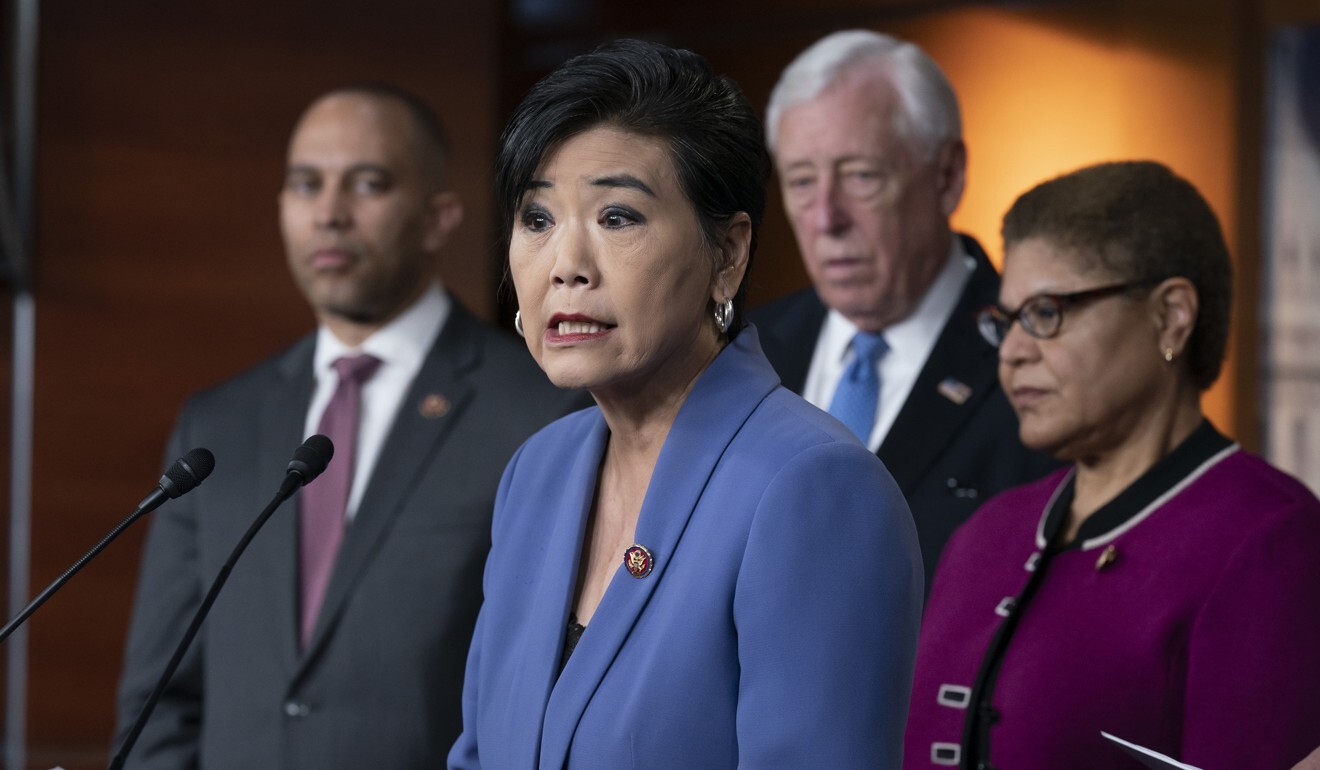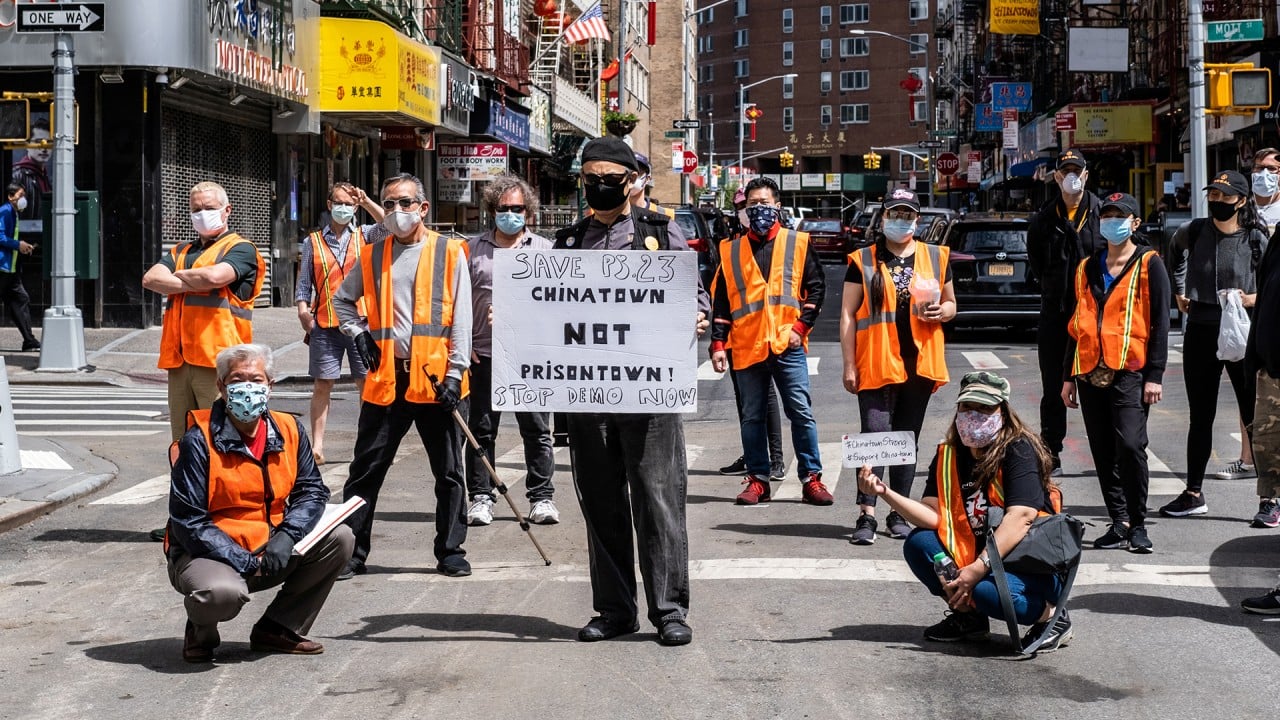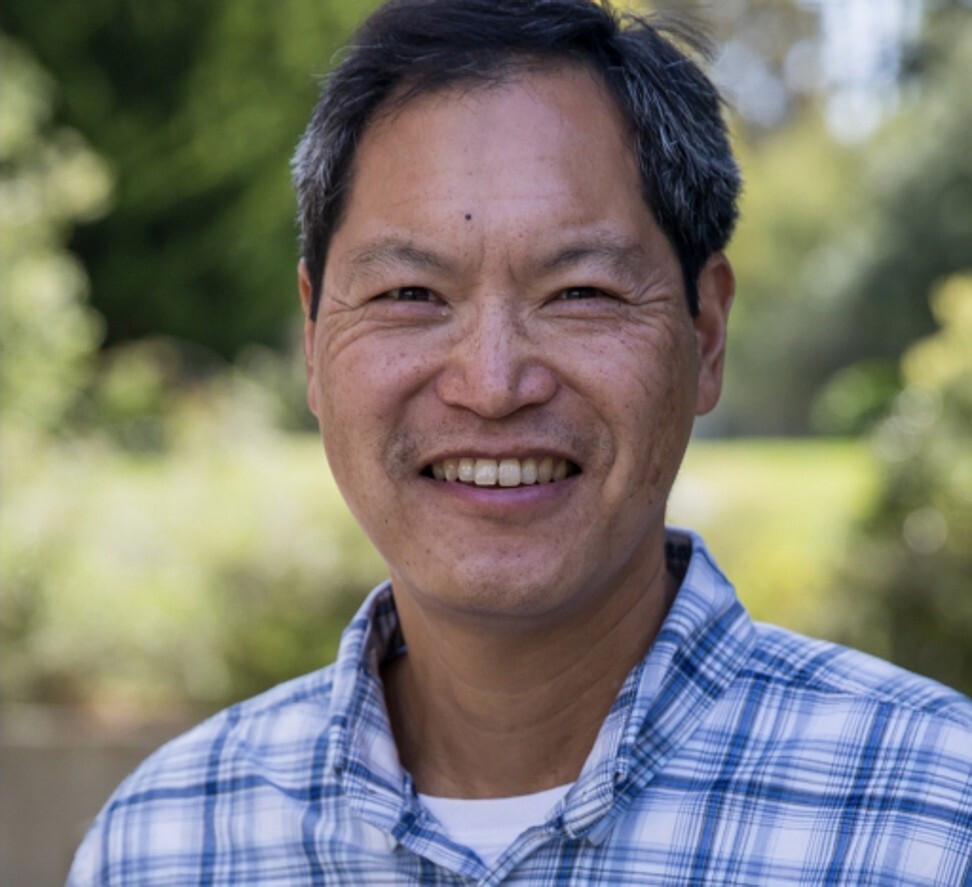
Joe Biden rebuked by advocates for not naming any Asian-American to a primary cabinet seat
- Vice-President Kamala Harris, budget director nominee Neera Tanden and US Trade Representative nominee Katherine Tai are not enough for some activists
- The administration is the first in more than 20 years without an Asian-American leading one of the 15 major government departments, they note
When US President Joe Biden took office a month ago, his proposed cabinet was already being praised as the most diverse in American history. It would include, among others, the nation’s first openly gay cabinet secretary in Pete Buttigieg; its first Native American cabinet secretary in Deb Haaland; and its first African-American secretary of defence in Lloyd Austin.
Those postings come in addition to the election, along with Biden, of Vice-President Kamala Harris – the daughter of an Indian mother and Jamaican father who has risen higher in US leadership than any woman before her and is now potentially one of the most powerful Asian-Americans in American history.
Even so, some policy experts and activists have criticised the new administration for failing to name a single member of the country’s diverse Asian-American or Pacific Islander (AAPI) community to head one of the 15 executive-branch departments that constitute the core of Biden’s cabinet.

01:53
Kamala Harris takes oath to become 49th US vice-president
Of the wider pool of 24 cabinet-level officials, two nominees – US Trade Representative Katherine Tai and Neera Tanden, the director of the Office of Management and Budget – come from AAPI backgrounds. (Tai’s confirmation hearing is scheduled for Thursday; Tanden’s nomination has run into significant resistance.)
But, notably, the Biden administration is the first in two decades to not have AAPI figures in the top 15 positions of the executive.
For many Asian-American advocates, the scarcity of AAPI at the top tier of government is all the more puzzling since it followed the community’s strong turnout in the November presidential election, in which it showed overwhelming support for the Democrats. Polling data after the election showed that AAPI voters favoured Biden over Trump, 70 per cent to 28 per cent.
Moreover, Asian-Americans further flexed their political muscle in Georgia in January. There they played a decisive role, despite only making up 4 per cent of the state’s population – helping the two Democratic challengers, Jon Ossoff and Raphael Warnock, to razor-thin wins over Republican incumbents, and giving Biden and the Democrats control of the US Senate.
Among those disillusioned is Madalene Xuan-Trang Mielke, the president and chief executive of the Asian Pacific American Institute for Congressional Studies (AIPACS), who called the lack of Asian-American appointments “insulting and frustrating”.
“I give Biden ample credit [for] expanding diversity,” she said. “At the same time, the exclusion of an Asian-American in the core 15 executive departments is something that proves to be a disappointment and a missed opportunity.”
Mielke is far from the only one startled by the cabinet picks. In December – after Tanden and Tai were nominated – 116 current and incoming members of Congress, led by Representative Judy Chu, a California Democrat who chairs the Congressional Asian Pacific American Caucus, sent a letter to Biden, saying they were “deeply concerned” by the lack of a “single AAPI represented among the 15 Cabinet heads in our federal government”.
“The need for diversity at the highest levels is not for the sake of optics. It’s about ensuring all experiences are reflected in our decision making,” the letter added.
The letter also said the failure to include AAPI in any of those 15 positions would “erode the historic gains the AAPI community has made and send the wrong message that ‘diversity’ does not include AAPIs”.

The letter noted that the Biden administration was the first in 20 years to lack an Asian-American leading a core government department, starting with Norman Mineta‘s appointment as US secretary of commerce by Bill Clinton in 2000.
Mineta also served in the George W. Bush administration alongside Elaine Chao as labour secretary; she would return to the cabinet as transportation secretary under Donald Trump.
In between, Barack Obama’s cabinet included three Asian-Americans: Commerce Secretary Gary Locke at the commerce department, Eric Shinseki at veterans affairs and Steven Chu at energy.
Neither the White House nor Chu’s office responded to requests for comment.
Katherine Tai: Biden’s US trade chief pick ‘unmatched’ on China issues
To highlight the benefits of having an AAPI cabinet secretary, Mielke cited the example set by Mineta, a long-time Democratic congressman.
Mineta, the California-born child of Japanese immigrants, repeatedly spoke of his family’s experience during World War II, when they were interned by the government for several years at a camp in Wyoming.
“This is something that’s happened to this community. You do not want to have this happen to another community,” Mielke said. “This is part of a lived experience that goes with being someone from a diverse background. [Secretaries] are also thinking about who they are as an individual and what they bring to that experience.”

Mielke’s sense of disappointment has been echoed by Asian-Americans across the country. Others, however, are urging patience with the new administration.
Baoky Vu, a Georgia-based Vietnamese-American who served on then-president George W. Bush’s advisory commission on Asian-Americans and Pacific Islanders, said that Biden “is trying his best to come up with combinations of folks who have deep strength and knowledge of what they’re doing”.
“Sometimes I think many Asian-American advocacy groups get a little bit of ahead of themselves and want certain boxes checked off,” Vu, who identifies himself as an anti-Trump Republican, added.
“I think the president was under tremendous pressure to move on qualified candidates and get them confirmed quickly so that they can do their jobs.
“I give them a pass.”
Asian-American community activists and policy experts have almost universal praise for the Biden administration for taking early steps to reverse Trump-era policies that many linked to rising anti-Asian sentiment and harassment.

Among the measures so far, President Biden has issued a memorandum denouncing discrimination against AAPIs and providing guidance for the Justice Department on how to better collect data and assist in reporting crimes and harassment against Asian-Americans.
Biden has also banned references to Covid-19 by geographic location, after labels like “China virus” and “Wuhan virus” – often used by Trump – led to a wave of xenophobic incidents.
“I’m pretty pleased that he acknowledged the racism that Asian-Americans were experiencing,” Russell Jeung, chair of Stop AAPI Hate, a coalition of advocacy groups formed in response to a rise in hate crimes and harassment in 2020, said of Biden.
“Political rhetoric incited a lot of animosity and prejudices, and that’s a good first step.”
California’s epidemic of coronavirus hate: 832 anti-Asian incidents in 3 months
While the organisation has applauded Biden’s initial efforts, Jeung and other researchers believe many steps remain that are needed to help protect the Asian-American community and ensure it has equal rights and access to opportunities.
For instance, Stop AAPI Hate is calling for expanded civil rights protections for those experiencing discrimination; directing the US Attorney General to investigate and initiate civil actions against those discriminating; and enhanced community outreach and mediation efforts, as well as public hearings on anti-Asian hate.

03:41
Asian-Americans, harassed over coronavirus, push back on streets and social media
The organisation also advocates for an end to racial profiling of Chinese and Chinese-American scientists and researchers. Stop AAPI Hate believes this profiling – which intensified in 2018 as a result of the Justice Department’s “China Initiative”, which was aimed at countering perceived security threats – is largely a result of the Trump administration’s anti-China rhetoric.
“It’s hard to ascertain the extent to which the FBI and the Department of Justice are racially profiling Chinese-Americans, but I think we have four or five high-profile cases that seem an egregious loss of civil rights and trumped-up charges,” Jeung, a professor of Asian-American Studies at San Francisco State University, said.
“We need a congressional hearing on these types of incidents, and we need to get more facts about the extent of the profiling.”
How can Biden ‘change the narrative’ for Asian-Americans?
Mielke said that despite her disappointment, she believes her group and other AAPI organizations must join with the Biden administration to address the wider issues the AAPI community faced during the Trump years.
“We look forward to working with this administration to reverse the executive orders that occurred in the previous administration and bring us back to a place where we aren’t seeing xenophobia and racism against the community,” she said. “We want to be able to move forward together as a constituency to improve lives.”

While Jeung said he was also disappointed by the lack of an AAPI community member among Biden’s department heads, he believes that Vice-President Harris will help serve as a voice for the wider Asian-American community.
This, along with Biden’s stark change in tone and tact from the Trump administration, Jeung said, left him with a sense of comfort.
“On a personal level, it’s such a relief. Every morning we would wake up and complain about the danger we are facing with Trump as president,” he said. “There’s a palpable sense of relief and renewed hope that we can work to make things better.”
“The work is still there. The underlying racism and systemic injustices are still present,” Jeung added. “But there’s sort of light at the end of the tunnel. For me, it’s made a huge difference.”


